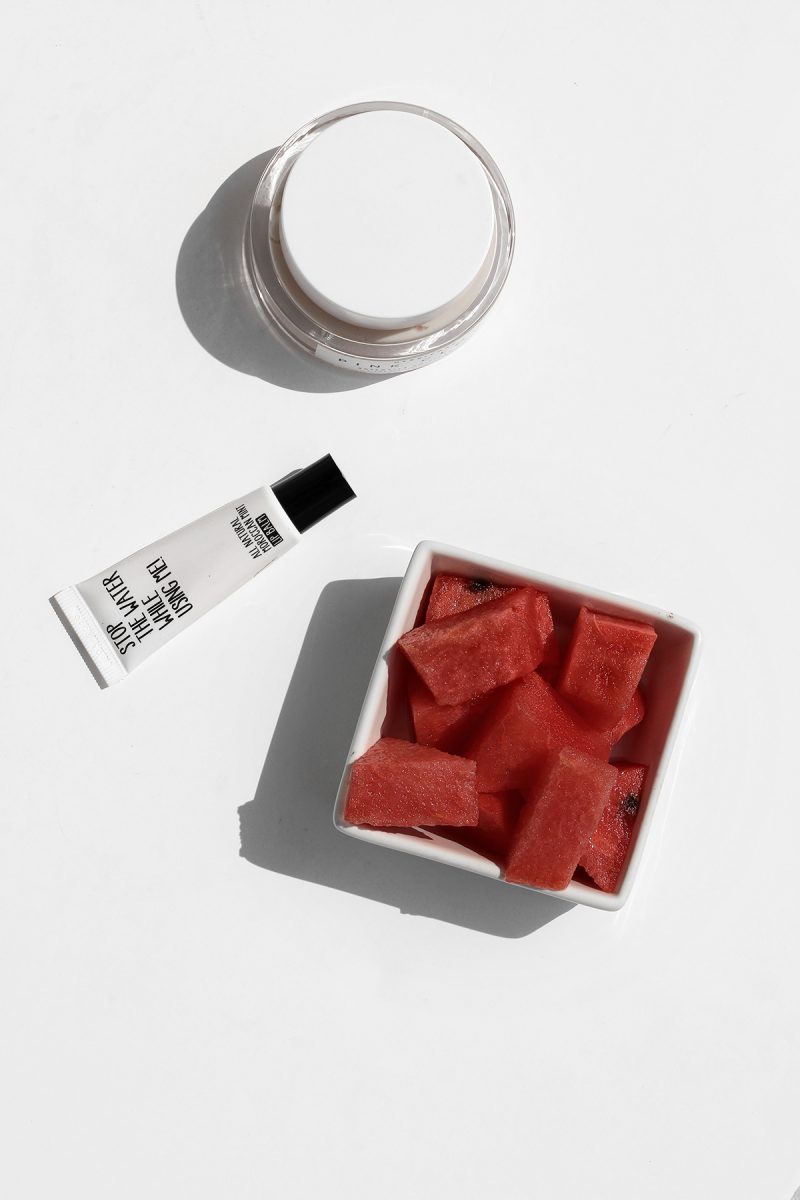 Holistic skin care is a term I see popping up left and right lately.
Holistic skin care is a term I see popping up left and right lately.
I should be happy – I actually believe in a holistic approach to health.
The problem?
As always, it often gets misinterpreted or is used as the latest catchy marketing term meant to get us to buy new stuff.
If you ever see holistic skin care used as a synonym for luxurious (and pricey), organic, natural, free-from-everything skin care products – just forget it.
They misuse the term and probably know it.
Holistic skin care is not simply another term for organic skin care. And it’s not some New Age-y, esoteric trend only fit for people who believe natural things are the only way to go.
It’s actually a lifestyle and a very comprehensive approach to health and balance that has nothing to do with buying exclusively natural products.
The whole-istic approach
I believe in scientific foundations when it comes to skin care. I love how technology offers new and effective solutions in medicine, health, or cosmetics.
But I also think a holistic approach to skin care (or for that matter, health) is essential.
A holistic health approach simply means looking at and treating something as a whole, and not just parts of it. The underlying philosophy is that these parts are interrelated and interdependent – balance, and thus health can only be achieved if all the parts are working properly.
It means looking for the causes as opposed to simply just treating symptoms. It acknowledges that our environment and inner imbalances (physical, emotional, mental) can have serious consequences for our health, thus we need to take everything into account if we would like to restore that balance.
Holistic practitioners also think that avoiding diseases is a bare minimum – we can and we should all aspire to improve our overall wellbeing.
By the way, a holistic approach and Western medicinal approach should not be mutually exclusive – just the contrary. Prevention, positive lifestyle changes, determining underlying causes of a bad condition, and treating the body as a system of interrelated parts are just as critical to maintaining health as using medicine, pill, or treatments. Each has its own role – they are not substitutes for each other.
In the case of skin care, a holistic approach means that putting on an expensive moisturizer on our face is not enough. It only treats one part of the skin – the outer layer, and only temporarily. But the overall health of our skin (remember, it is our largest organ) depends on so much more than that.
It’s not enough to treat it from the outside only. We have to nurture it from the inside as well. The status and look of skin depend on many factors – from ingredients we use, through our lifestyle choices (diet, exercise) and the environmental stressors we meet, to our emotional and mental well-being.
10 main elements of a holistic skin care routine
Nourish your skin with the right ingredients
First of all, get familiar with your own skin. Know what it’s like and what it needs in order to choose the best ingredients and products for you. Learn how to decode an ingredient list.
Skin care is a long-term game and is meant to nurture the skin (inside and outside), not treated in a frantic, campaign-like way. No spot-healer will actually heal the underlying causes of acne. Nothing will miraculously reverse the aging process in a day.
Stay away from harsh, stripping products. Try a good oil cleanser to preserve the absolutely vital barrier function of the skin. Use good vitamins, antioxidants, and the very few anti-aging ingredients that are actually proven to work. Wear SPF.
And most importantly, establish a fix skin care routine – give it the care it deserves every single day.
Eat your skin beautiful
How we eat is probably just as important when it comes to skin care as what we put onto our skin. The healthier and more balanced your diet is, the more it will show on your face.
How food affects our skin is actually a fascinating (and very lengthy) topic that would probably require a separate, dedicated post. Until that happens, here’s the lowdown:
- Several studies have linked dairy to acne, so test whether it affects your skin and try to limit your intake accordingly.
- Foods that spike the blood sugar level, like sugar, white bread, pasta, processed food, white pastries, soda, cookies can increase sebum production and worsen acne, break down collagen, can cause inflammation, and are generally not very healthy options. It’s best to keep the blood sugar level balanced by eating whole grains, vegetables, beans, or nuts.
- Proper fiber intake is essential – fiber is a carbohydrate that plays a vital role in health, even though it is non-digestible. But it contributes to gut health by feeding the absolutely vital bacteria that live within us, can help balance blood sugar levels, and aid digestion. Fiber-rich foods include beans, lentil, chia seeds, flaxseed meal, whole wheat pasta, but it’s important to note it’s best to increase your fiber intake gradually.
- Pay attention to your vitamin intake, but try to get them mostly from natural sources, not pills or supplements. Eat a lot of raw vegetables and fruit – that’s the state with the highest quantity of vitamins.
- Antioxidants can help neutralize free radicals that wreak havoc on healthy cells, so they must be consumed regularly. Antioxidant-rich food includes dark green vegetables, tomato, berries, beans, apple, pecan, grapes, nuts.
- Healthy fats (avocado, walnut, flaxseed, olive oil, nut butter) will lower bad cholesterol and boost our immune system. Omega-3 fatty acids (fish, flaxseed, walnuts) can help keep skin cell membranes strong and elastic.
- Caffeine can help increase the cortisol level, though its effects are not the same for everyone, and it does have positive health benefits as well.
- Very salty foods (check the sodium percentage) make skin retain water and make you look puffy and bloated.
- Alcohol dehydrates and often adds a big sugar dose that can increase inflammation. Very heavy alcohol consumption will lead to face puffiness, redness, and broken capillaries.
But it’s important to note – it’s all about the balance. A very restrictive diet can also be very harmful and result in very serious health and skin conditions. Focus on the good nutrients, try to make healthy choices most of the time, but do not deprive yourself totally of the things you enjoy, be it a glass of wine or a slice of chocolate cake. Everything in moderation is my motto.
Water
For a long time, I thought “just drink a lot of water” was the most overused and bland beauty advice ever. Especially from supermodels.
Like, yeah, right – water. I bet you just don’t wanna share your secret tips.
The day I finally realized the deep truth of that advice was a sobering one.
After spending thousands of dollars on fancy skincare over a decade, I had to conclude that water really is a magical thing and cannot be left out of a good skin care routine.
I know, because the difference between my well-hydrated and sadly neglected skin is very visible. Not to mention the incredibly obvious health benefits of drinking water, from preventing headaches to boosting your energy.
It’s the epitome of beauty from within.
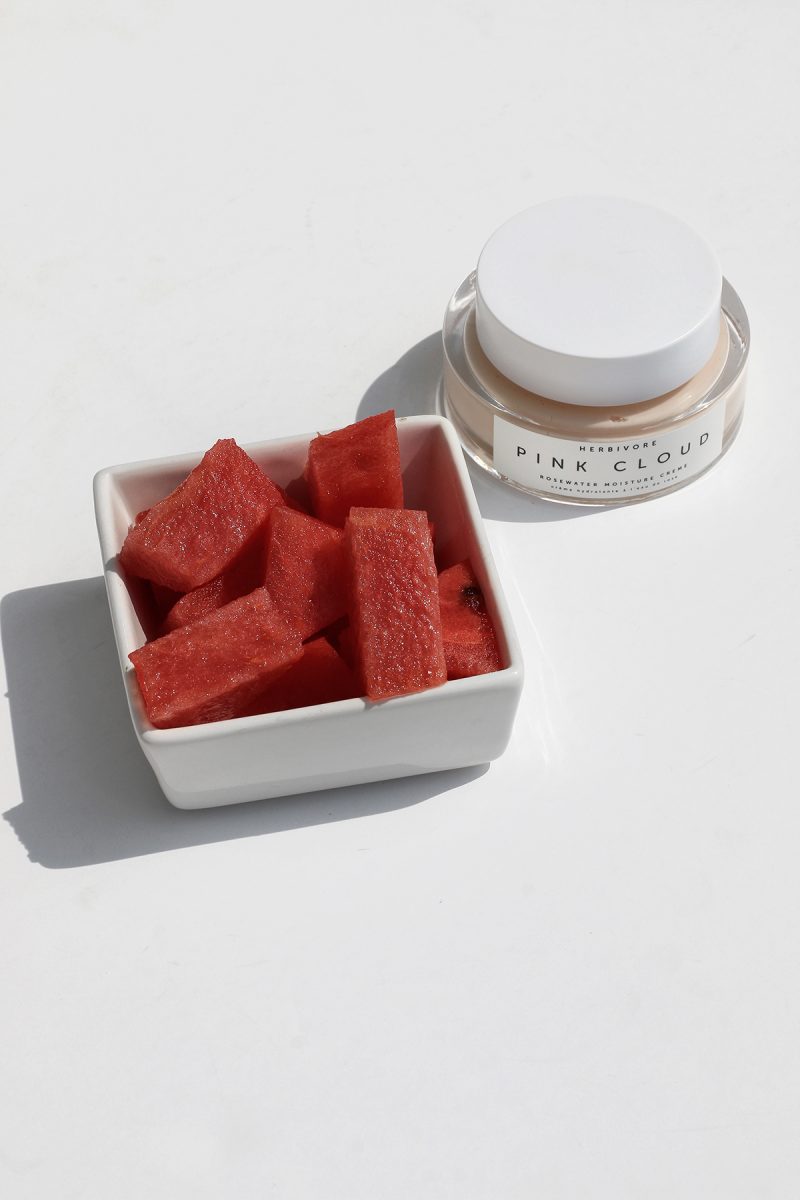 Exercise
Exercise
Exercise for better health – and for better skin.
Exercise can help ease stress and release feel-good hormones, like endorphin that regulate the bad stress hormone cortisol (also responsible for acne-causing oil production and inflammation). Sweating during exercise can also help clear out the skin – provided you wash it well afterward.
It also greatly improves circulation and blood flow, which is vital for carrying away waste products and transporting oxygen and nutrients to skin cells. It also promotes better sleep, which brings us back to better skin.
Beauty sleep
Probably no need to provide an extensive explanation for the correlation between skin health, beauty, and sleep.
We’ve all been there and seen the consequences. Sleep deprivation results in dark circles, as well as grey and saggy skin. It can result in elevated levels of cortisol and stress hormones that can lead to more inflammation and the worsening of conditions like eczema or psoriasis. No sleep also means no restorative period for our body and skin, when they could rejuvenate, renew, and regenerate.
Related: Does your skin really know it’s nighttime? A word on night products
They call it beauty sleep for a reason.
Stress less
The fact that stress is bad for us is probably not groundbreaking, new information. I actually think that stress is one of the biggest culprits for our civilizational diseases.
And stress shows on our skin as well. It can lead to acne flare-ups, hives, rashes, hair loss or can increase and worsen existing skin conditions like rosacea and psoriasis.
I’m sure most of us have experienced at least mild variants of these, like breaking out before an event we’re nervous about. It’s because stress releases certain chemicals and hormones, like cortisol that increases oil production and damages our immune system. Stress can also suppress hyaluronic acid production leading to dry and dull skin. Lack of sleep and nervous behaviors like biting nails or picking our face that frequently accompanies stressful times can only exacerbate the problem.
Of course, the “just stress less” advice is a classic easier said than done thing. But we all MUST find our personal ways to deal with stress and relax more, whether it’s meditation, breathing techniques, exercise, or activities that counterbalance the stress effects and make us truly happy.
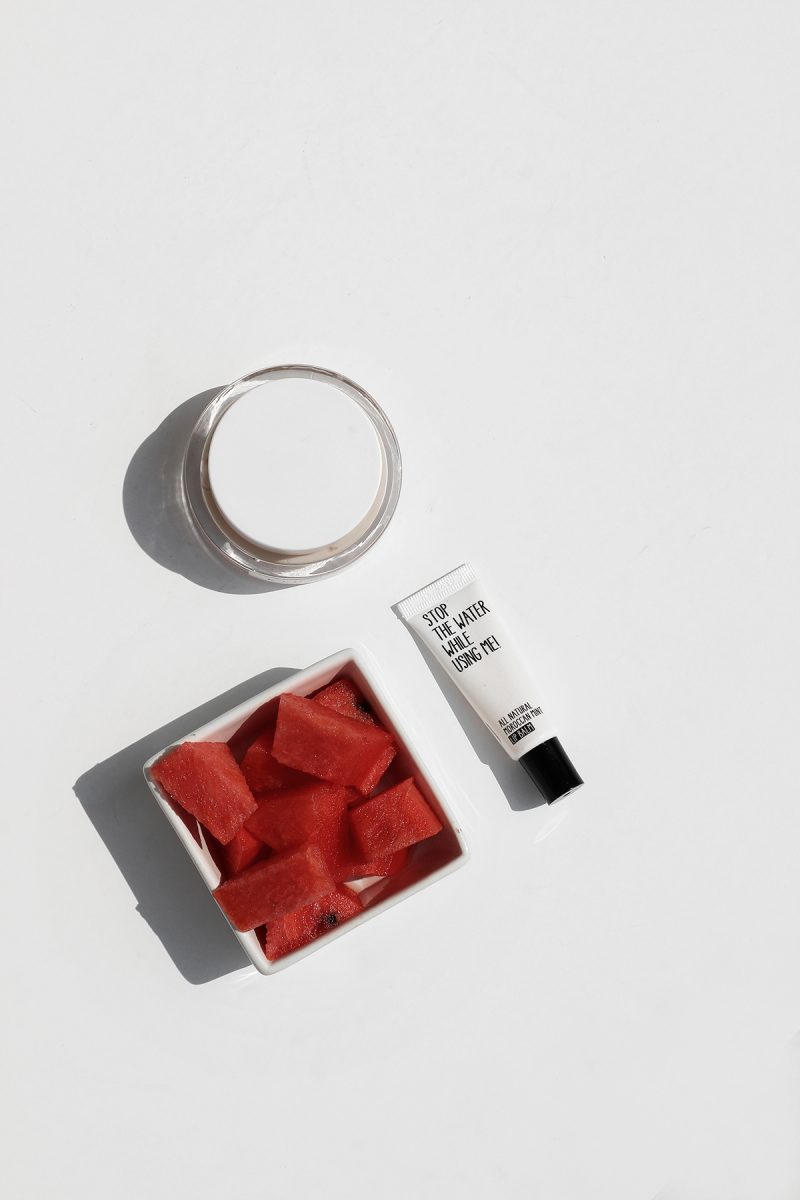
Pampering
Some people make fun of the fact that facial masks seem to have a fixed place in recommended self-care activities.
I actually think they are an important part of self-care as well as a holistic approach to skin care.
Massages increase blood circulation and ease muscle tension. Masks or targeted skin treatments give a bigger dose of vital ingredients to your skin. Essential oil baths, exfoliation, steam will work on clearing and smoothing your skin.
But the immediate effects, like smooth, glowy skin are just one benefit.
Because when you pamper yourself, whether it means an at-home bubble bath/facial mask duo or a more special massage/facial treatment at a spa, you finally give permission to your body and mind to RELAX – and that has enormous health benefits.
It can help us de-stress and we have already established how important that is. Relaxing pampering activities can reduce anxiety, relax tense muscles, lead to better sleep, help the lymphatic systems to function better, reduce inflammation, and trigger the release of feel-good hormones, like serotonin and oxytocin.
I also think that there are great mental benefits of treatments and pampering – in a way we do not only care for our physical body, we care for our souls and mental well-being as well.
So, take your pampering seriously and do not regard it as something superficial or frivolous. You’re giving your body the health boost it desperately needs.
Defense against sun exposure and environmental pollutants
I’ve said it before and will say it again and again: one of the most important things that we can do for our skin is to defend it from sun exposure. It can accelerate aging, can lead to sunspots, and in more serious cases, melanoma or skin cancer.
Do yourself a favor and always, always wear SPF when you go out.
City pollution is another important factor in premature skin aging. Its effects on the skin are quite a new territory, but researchers increasingly focus on the connection between the state of our skin and the environment we live in. It’s best to be safe and prepare with the right defense.
Pay attention to the signs
As I said, what’s happening on the inside is often showing on the outside. In other words, learn to read the signs your skin and body is sending you. It’s safe to say I’m a true skincare junkie, but they should only be used as one part of a holistic skin care approach.
If your skin is dehydrated, don’t just drown it in a moisturizer – up your water intake. If you have dull skin, don’t just rush to get the next glow-promising serum – take a look at your diet and whether it provides enough vitamins and nutrients. If you have sudden breakouts, flares, or conditions that persist for some time – consult a dermatologist. It can be the result of an allergy, digestive issues, some kind of deficiency, hormone imbalances or other problems.
Have fun and laugh a lot
Do not ever be ashamed of your smile lines on your face.
They are proof of a life well lived.
What do you think of the holistic skin care philosophy?

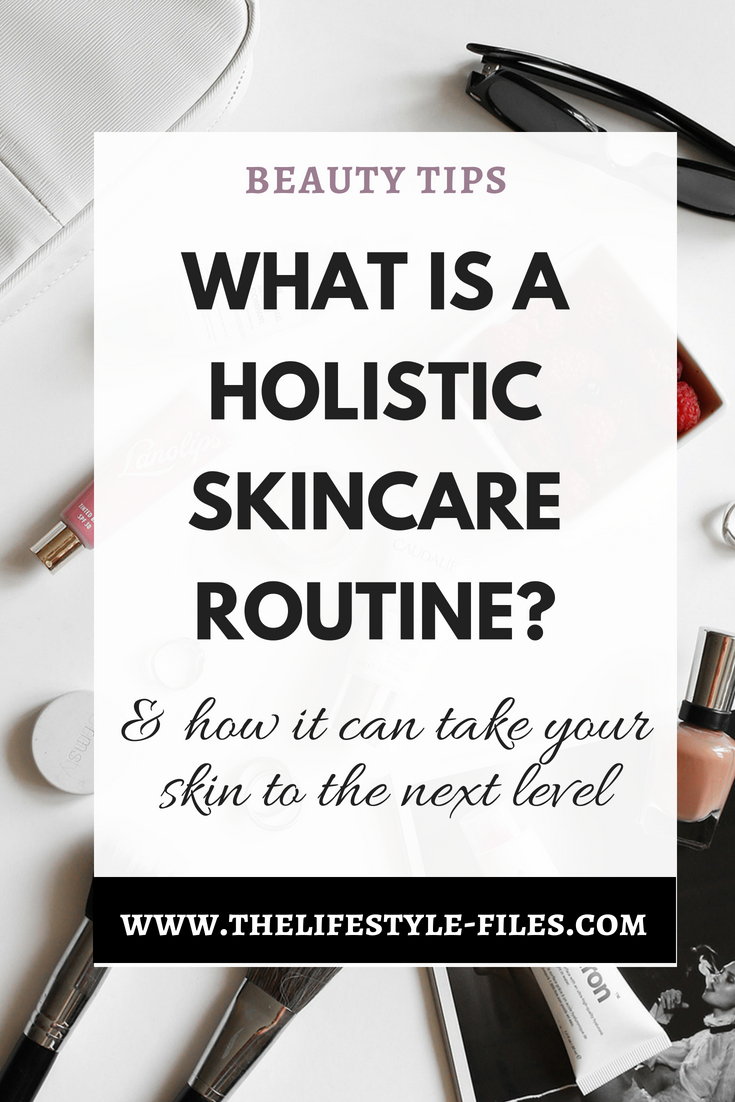
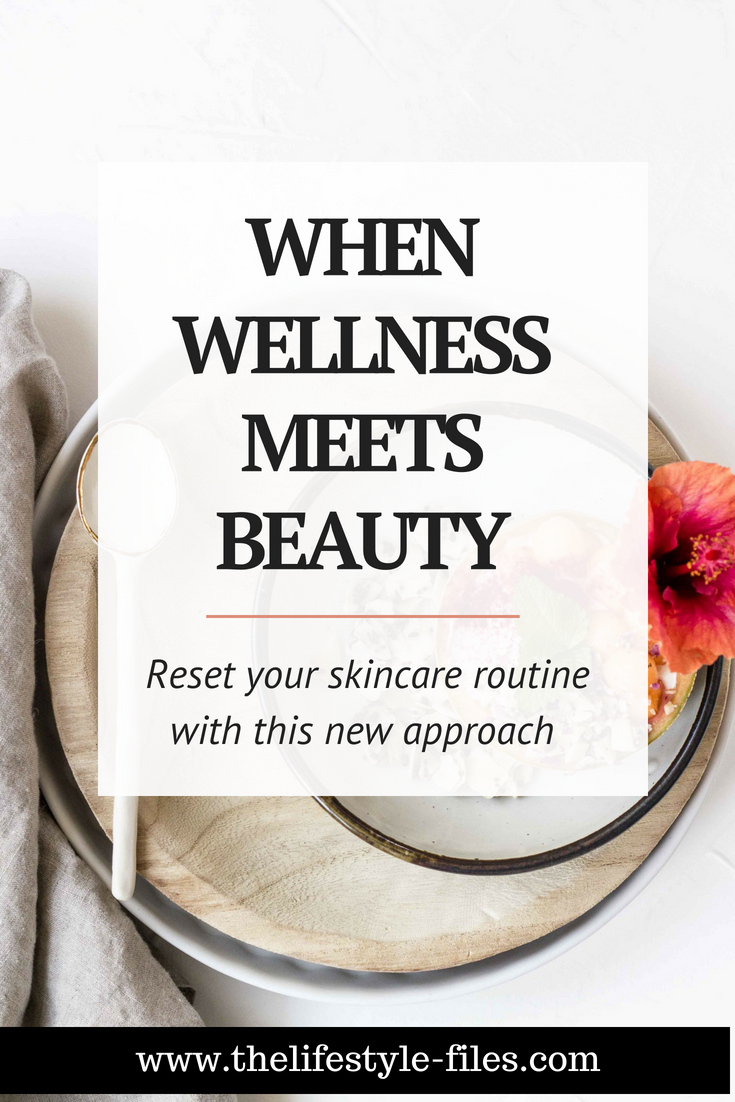
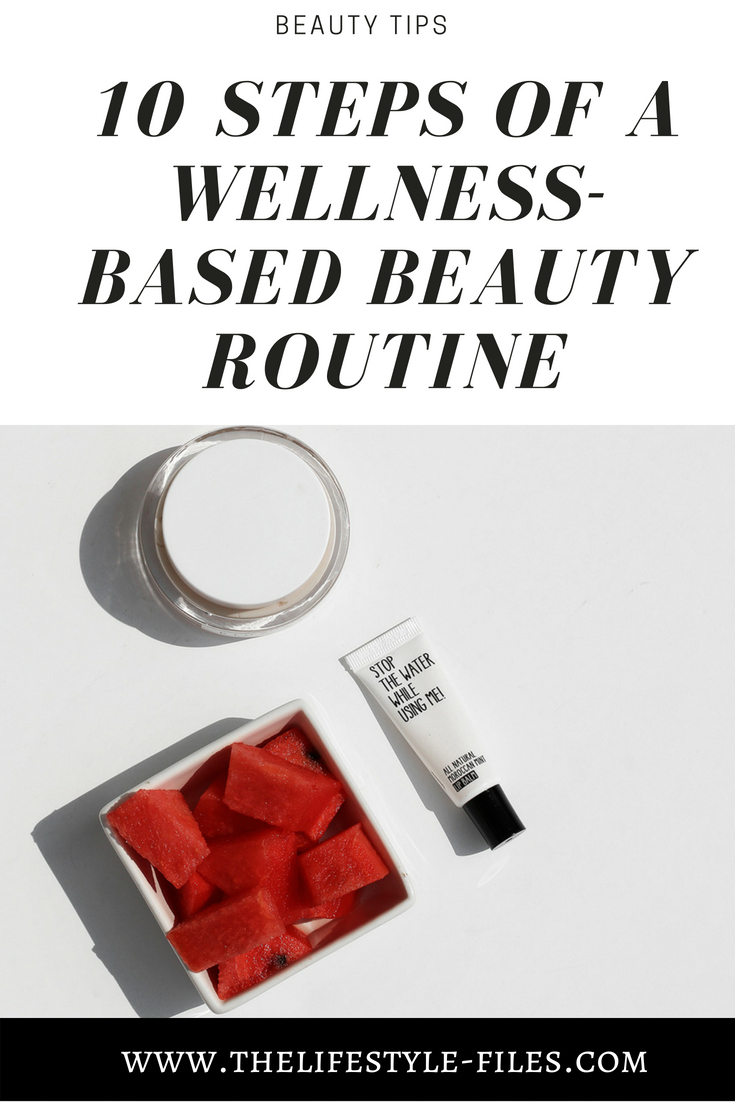
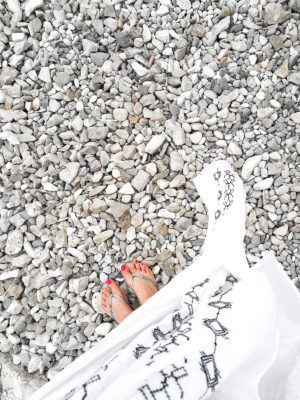
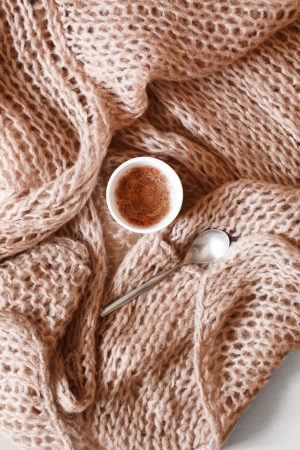
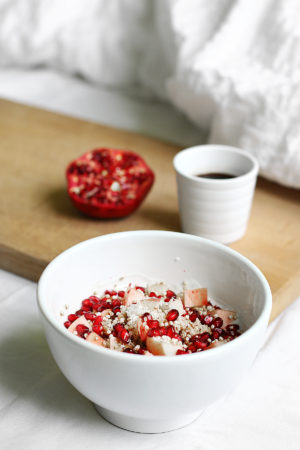
[…] Wpis powstał w wyniku przekładu artykułu: WHEN WELLNESS MEETS BEAUTY: A HOLISTIC SKIN CARE ROUTINE […]